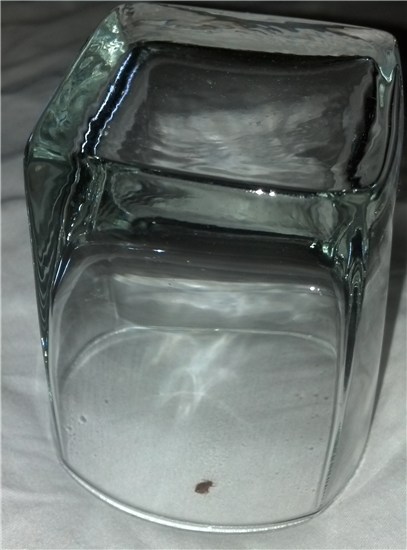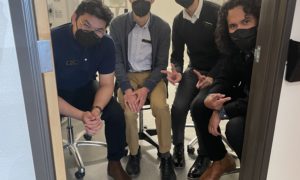By Brian Chou, OD,  FAAO
FAAO
Not long ago, I stayed at an upscale ocean-front hotel for a weekend getaway. It was a memorable stay because, aside from the impressive property and amenities, I found a bedbug crawling toward me on the top of the white bed sheets. I jumped out of bed and trapped it with one of the glasses from the wet bar. Then I took a picture of the critter using my smartphone. I confirmed that it was a bedbug by comparing it with images of bedbugs on my phone. I then stopped by the front desk to alert the hotel staff of my finding.
 As I learned shortly thereafter, in recent years, there’s been a nationwide resurgence of bedbugs which has plagued even the most exclusive hotels. Bedbugs are small blood-sucking insects that are nocturnal. While they are not known to carry disease, their bites can cause significant itching, and certainly their existence can upset hotel guests and generate bad publicity.
As I learned shortly thereafter, in recent years, there’s been a nationwide resurgence of bedbugs which has plagued even the most exclusive hotels. Bedbugs are small blood-sucking insects that are nocturnal. While they are not known to carry disease, their bites can cause significant itching, and certainly their existence can upset hotel guests and generate bad publicity.
I was caught off guard by the seriousness and commotion by which the hotel staff responded to my bedbug report. The head of hotel security escorted me back to the room, collected the bedbug, and locked the room down as part of their standard procedures. I filled out a form describing the incident, and someone from Ecolab, a contracted vendor, came to inspect the room and treat it. The next day, the manager of the hotel called me, apologizing profusely and explained that the Ecolab inspection indicated that although the insect I captured was indeed a bedbug, there was no additional bedbug “activity” found in the room.
The manager said that my experience was not representative and wanted to make sure that I was happy with the way they responded to the incident. I let him know that I understood that these unfortunate things happen in business and that their response reflected well upon their staff and hotel. Given that I was inconvenienced by this incident and that a guest booking a room at a hotel of this caliber should reasonably expect a pest-free stay, I asked the manager what they typically did to make things right. He said that in compensating the guest, they took things on a case-by-case basis, but that he wanted to offer me a complimentary future stay at any of their hotels, which I graciously accepted.
I believe this hotel handled the bedbug incident admirably. They retained my loyalty and seemed to recognize the financial damage of having an unhappy guest. One can imagine the ill effects to a hotel if an unhappy guest were to post his bedbug experience with a photo on a web site such as TripAdvisor, Yelp, Google or Bedbug Registry.
Yet this incident brought forth my awareness of the growing potential of unscrupulous clientele taking advantage of business establishments. Other hotel guests in my shoes may have tried milking the hotel for much greater compensation. I have observed such behavior in my own practice. One week prior to my hotel stay, I discharged a patient from my practice, the first time I have done this in many years. My staff made the honest mistake of releasing to her a single-vision eyeglass prescription that was four months older than the newest prescription. The only difference was the newest one had -0.25 DS more power in each eye. I apologized to the patient, conceding that we are human, and my staff immediately reissued the latest prescription.
Still, the patient complained that she was visually incapacitated by continuing to wear the prescription from four months prior, which she filled outside in a warehouse membership club. Since it was my practice’s mistake, she said that if she got into an accident during her weekend ski trip before getting her redone glasses, she would sue my practice, conspicuously reminding me that her husband was an attorney. On her return the following week, she said that she did not ski at all that weekend, fearing for her safety without updated glasses and suggested that my business should reimburse her for her $800 trip. She also said that since she was flying out of town, that one of my staff should drive down to the warehouse club to pick up her redone glasses when ready and have it shipped overnight to her at no cost.
This patient’s demands became absurd, unreasonable and extortionist. Although I am sympathetic and more than willing to make things right when a patient does not have a desirable outcome, I will not tolerate any patient who tries to take advantage of my business. I discharged this problem patient with a formal letter of termination, gave her a check for the amount of her last exam and her incurred lens cost, and a copy of the last exam record to take to her new practitioner.
Reflecting on these recent incidents, I can say that in times of conflict, one’s true colors come through. With the hotel I stayed at, how they handled the bedbug incident showed me that their organization would do the right thing if things went wrong. In the case of the patient that I discharged, I saw her greed and level of manipulation. The benefit of conflict is that it is like the receding tide which bares one’s intentions, otherwise hidden underwater, and lets you know who you want to associate yourself with.
In times of conflict, let patients see your practice at its best. Offer fair and gracious compensation, but keep balance in mind. It never helps to get taken advantage of.
How do you resolve conflicts so patients always leave your practice satisfied? How do you ensure that a resolution is fair both to you and the patient?
Brian Chou, OD, FAAO, is a partner with EyeLux Optometry in San Diego, Calif. To contact him: chou@refractivesource.com.



























